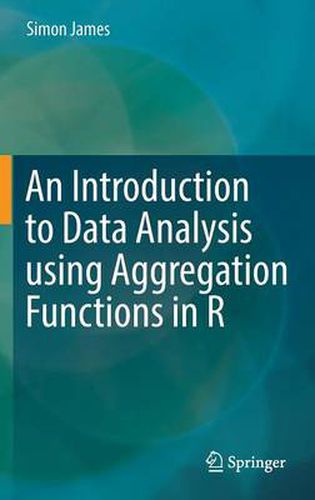Readings Newsletter
Become a Readings Member to make your shopping experience even easier.
Sign in or sign up for free!
You’re not far away from qualifying for FREE standard shipping within Australia
You’ve qualified for FREE standard shipping within Australia
The cart is loading…






This title is printed to order. This book may have been self-published. If so, we cannot guarantee the quality of the content. In the main most books will have gone through the editing process however some may not. We therefore suggest that you be aware of this before ordering this book. If in doubt check either the author or publisher’s details as we are unable to accept any returns unless they are faulty. Please contact us if you have any questions.
This textbook helps future data analysts comprehend aggregation function theory and methods in an accessible way, focusing on a fundamental understanding of the data and summarization tools. Offering a broad overview of recent trends in aggregation research, it complements any study in statistical or machine learning techniques. Readers will learn how to program key functions in R without obtaining an extensive programming background. Sections of the textbook cover background information and context, aggregating data with averaging functions, power means, and weighted averages including the Borda count. It explains how to transform data using normalization or scaling and standardization, as well as log, polynomial, and rank transforms. The section on averaging with interaction introduces OWS functions and the Choquet integral, simple functions that allow the handling of non-independent inputs. The final chapters examine software analysis with an emphasis on parameter identification rather than technical aspects. This textbook is designed for students studying computer science or business who are interested in tools for summarizing and interpreting data, without requiring a strong mathematical background. It is also suitable for those working on sophisticated data science techniques who seek a better conception of fundamental data aggregation. Solutions to the practice questions are included in the textbook.
$9.00 standard shipping within Australia
FREE standard shipping within Australia for orders over $100.00
Express & International shipping calculated at checkout
This title is printed to order. This book may have been self-published. If so, we cannot guarantee the quality of the content. In the main most books will have gone through the editing process however some may not. We therefore suggest that you be aware of this before ordering this book. If in doubt check either the author or publisher’s details as we are unable to accept any returns unless they are faulty. Please contact us if you have any questions.
This textbook helps future data analysts comprehend aggregation function theory and methods in an accessible way, focusing on a fundamental understanding of the data and summarization tools. Offering a broad overview of recent trends in aggregation research, it complements any study in statistical or machine learning techniques. Readers will learn how to program key functions in R without obtaining an extensive programming background. Sections of the textbook cover background information and context, aggregating data with averaging functions, power means, and weighted averages including the Borda count. It explains how to transform data using normalization or scaling and standardization, as well as log, polynomial, and rank transforms. The section on averaging with interaction introduces OWS functions and the Choquet integral, simple functions that allow the handling of non-independent inputs. The final chapters examine software analysis with an emphasis on parameter identification rather than technical aspects. This textbook is designed for students studying computer science or business who are interested in tools for summarizing and interpreting data, without requiring a strong mathematical background. It is also suitable for those working on sophisticated data science techniques who seek a better conception of fundamental data aggregation. Solutions to the practice questions are included in the textbook.